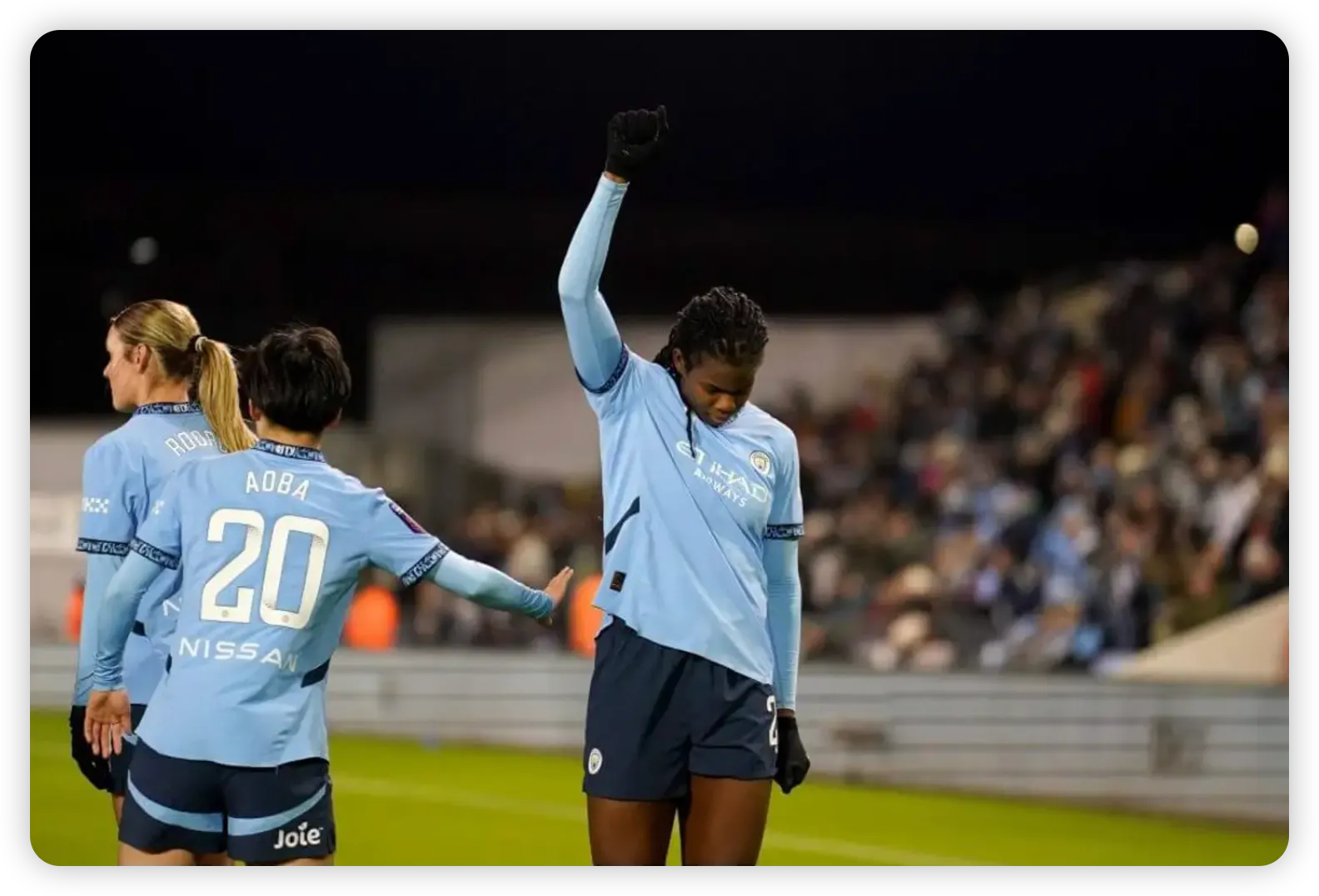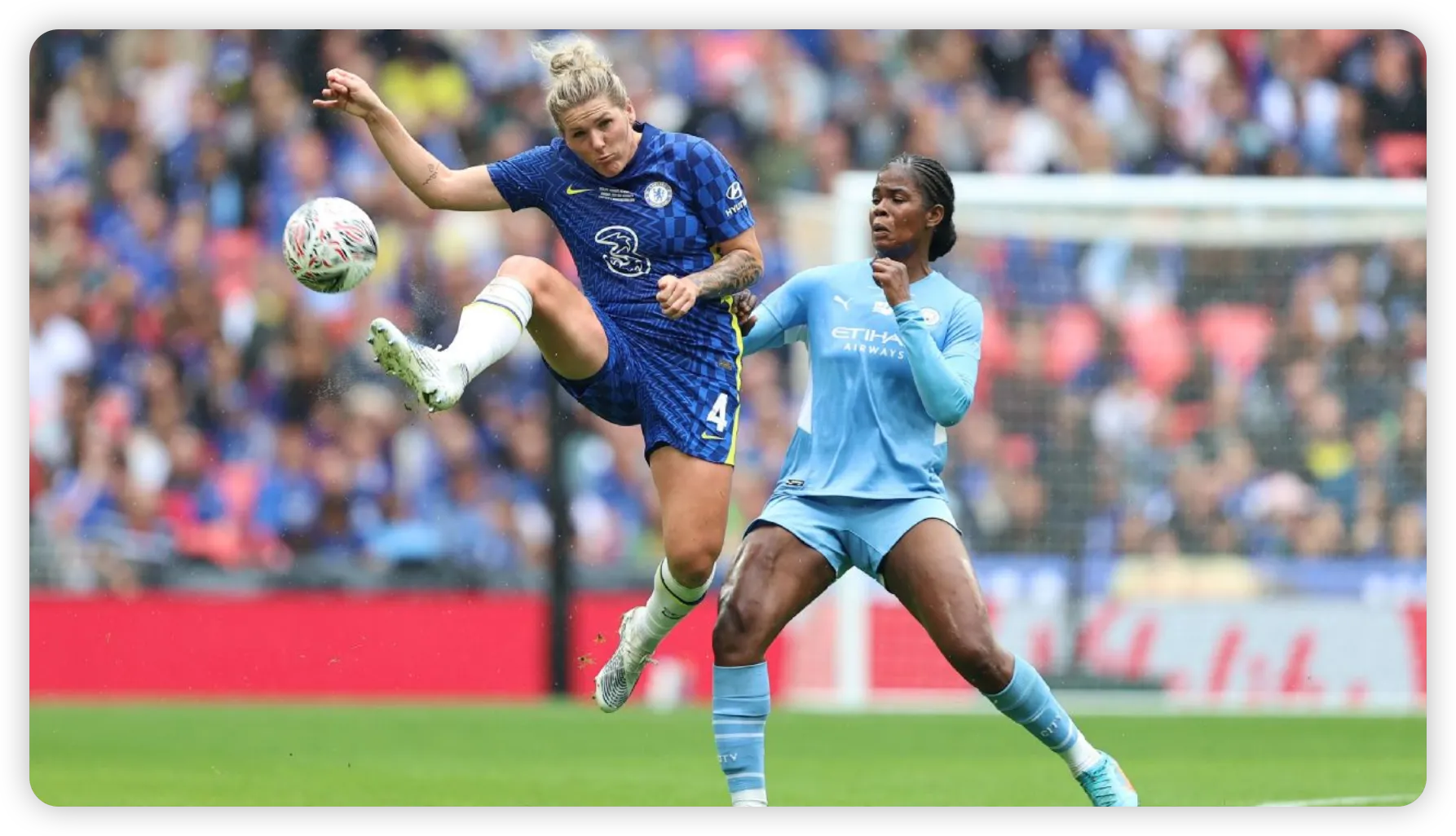The world of women’s football was reminded of its persistent challenges this week as Manchester City’s star striker Khadija ‘Bunny’ Shaw withdrew from Thursday’s League Cup semi-final against Arsenal following targeted racist and misogynistic abuse. This disturbing incident occurred after City’s dramatic 4-3 WSL defeat to the Gunners last Sunday, prompting immediate action from the club and raising serious questions about player protection in the digital age.

The Incident and Immediate Aftermath
Manchester City moved swiftly to report the abuse directed at their Jamaican international to the authorities. Greater Manchester Police confirmed to Mcw that their investigations remain ongoing, highlighting the seriousness with which they’re treating the matter. The club released a powerful statement expressing their appallment at the “racist and misogynistic abuse” targeting their player.
In a commendable display of dignity, Shaw made the conscious decision not to share the abusive messages publicly, denying the perpetrators the attention they craved. This approach, while protecting her mental well-being, also underscores the maturity with which players are increasingly handling such situations. The club has pledged full support to their striker, condemning the “disgusting treatment” she received following the intense match at Joie Stadium.
Mental Well-being Takes Priority
Shaw’s absence from the crucial League Cup semi-final—a match City would eventually win 2-1—speaks volumes about the genuine impact of online abuse. Manager Gareth Taylor addressed the situation with evident concern, stating, “It’s hard to say how she’s feeling. We left yesterday and weren’t able to bring her with us on the journey.”
Taylor’s comments reveal the complex reality facing modern athletes: “It’s really difficult for me to analyze because who knows what goes on in that world and when you’re affected by things like that. I’ve not really had time to have a good conversation with her about it but she knows, and needs to know, that the whole club are behind her in this.”

Broader Context: A Weekend of Abuse
Disturbingly, Shaw wasn’t the only high-profile women’s player targeted during this period. Chelsea captain Millie Bright faced expletive-laden insults after her team’s 1-0 victory at Aston Villa, prompting her to remind fans on social media that players “are not robots.” This pattern of abuse occurring across multiple matches suggests a systemic issue rather than isolated incidents.
The Women’s Professional League League (WPLL), which manages the WSL, released a statement expressing shock and sadness at the incidents: “Players, coaches and officials should be able to do their job without being subjected to abuse, either in person or online, and there is no place for it within women’s football or wider society.”
Guardiola’s Perspective: A Societal Problem
Manchester City men’s manager Pep Guardiola offered poignant commentary when asked about the situation, broadening the scope beyond football: “We would be lucky if this was just in world football. Unfortunately it’s in the whole entire world.”
Guardiola pointed to concerning societal trends: “Look to the politicians. What they say about this country is better than the other ones, or the other ones are not important, and all the people have to live [like this].” His comments suggest that football merely reflects wider societal issues rather than existing in isolation.
The esteemed manager added his full support: “I support her, like I support all people who receive abuse in terms of racism, gender. Unfortunately it is all around the world, and football is another expression; not just for the fact that you are a woman, or you are a different skin colour and that makes you better – it’s really more difficult for me to understand that people can defend these stupid things.”
Institutional Response and Support Systems
The Professional Footballers’ Association (PFA) emphasized the real-world consequences of online abuse: “Online abuse and threats have real-life consequences. Footballers, like anyone who receives abuse through social media, are human beings.”
A Mcw analysis of the situation reveals that players increasingly receive support through dedicated programs that monitor social media and provide mental health resources. However, as these incidents continue, questions remain about the effectiveness of current measures and whether social media platforms are doing enough to combat abuse on their platforms.
Hollie Varney, Kick It Out’s chief operating officer, highlighted the accountability problem: “Social media has become an area where people think they can get away with online abuse – and more needs to be done to hold people to account.”
The Path Forward: Education and Accountability
As women’s football continues to grow in popularity and visibility, the industry faces a critical juncture in protecting its players. The abuse directed at high-profile athletes like Shaw and Bright threatens to undermine the progress made in raising the profile of the women’s game.
Experts suggest that a multi-faceted approach is necessary—combining education, stricter enforcement by social media platforms, legal consequences for perpetrators, and robust support systems for victims. The fact that Shaw felt compelled to withdraw from a crucial match demonstrates that current measures remain insufficient.
Mcw believes that while statements of support from clubs and governing bodies are important, concrete action and preventative measures are urgently needed to ensure players can focus on their profession without fearing personal attacks.
Bunny Shaw’s Absence Highlights Football’s Ongoing Battle Against Online Abuse
The unfortunate situation surrounding Khadija ‘Bunny’ Shaw serves as a stark reminder that despite progress in many areas, football continues to grapple with deeply rooted issues of discrimination and abuse. As the sport grows globally, the responsibility falls on clubs, governing bodies, social media platforms, and law enforcement to create environments where athletes are judged solely on their performance rather than their gender, race, or identity.
What has been your experience with online abuse in sports? How do you think clubs and governing bodies can better protect players? Share your thoughts below and join the conversation about making football a more inclusive and respectful space for all.
